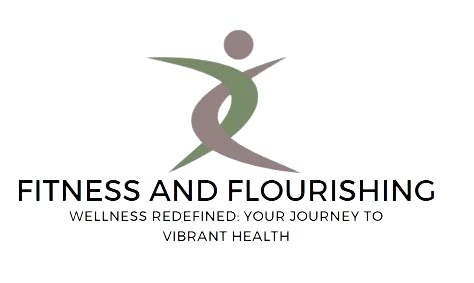While bone mass peaks around age 30, the foundation for healthy bones is built throughout childhood and adolescence. By incorporating a healthy diet rich in minerals and regular physical activity, especially weight-bearing and strength training exercises, you can maximize bone density during your growing years and help prevent bone loss later in life.
1. Eat vegetables
Vegetables play a crucial role in promoting bone health throughout life. They are rich in vitamin C, which stimulates the production of bone-building cells and potentially shields them from damage. Studies suggest that vegetables can boost bone mineral density, a critical factor in preventing osteoporosis. While crucial for bone development in children and young adults, vegetables also benefit older women. Research indicates that consuming vegetables, particularly high-antioxidant ones like onions, can lower the risk of osteoporosis and potentially slow down bone breakdown.

2. Strength training or exercises
Weight-bearing exercises, like jumping or running, and strength training are excellent for bone health. They promote bone growth during youth and help prevent bone loss in older adults. While both offer benefits, some studies suggest that strength training might be particularly effective in increasing bone density in the hip, a common site for fractures.

3. Consume protein
Protein is a fundamental building block for bones, making up about half of their structure. While concerns exist about high protein intake potentially harming bones, research suggests this is different for individuals consuming up to 100 grams daily, especially when balanced with adequate calcium and plenty of plant-based foods. Studies show that higher protein intake, particularly in older women, is linked to increased bone density and a lower risk of fractures. Additionally, the protein appears to aid in preserving bone mass during weight loss.

4. High calcium foods
Our bones constantly renew, requiring a daily dose of calcium for optimal structure and strength. While the recommended daily intake (RDI) varies by age, most adults need 1,000mg. However, higher single intakes, exceeding 500mg per meal, decrease absorption efficiency. To maximize absorption and potentially reduce heart disease risk, it’s recommended to spread calcium intake throughout the day by incorporating calcium-rich foods at each meal, prioritizing food sources over supplements.

Our recommendation for you ;
5. Vitamin D and K
Vitamin D and K are crucial partners in building strong bones. Vitamin D, ideally reaching a blood level of 30 ng/ml, aids calcium absorption and protects against bone loss. Deficiency is prevalent, requiring sun exposure, specific foods, or supplements up to 2,000 IU daily. Vitamin K2, mainly MK-7, found in fermented foods, modifies a bone protein to promote mineral binding and potentially prevent calcium loss. While studies show promise for K2 supplementation in maintaining bone density, further research is needed to solidify its definitive role.


6. Avoid less calories diet
Severely restricting calories can negatively impact bone health. Studies have shown that consuming less than 1,000 calories daily can lead to bone density loss, regardless of weight or exercise habits. Aim for a balanced diet of at least 1,200 calories rich in protein and bone-supporting nutrients for optimal bone health.

7. Take collagen supplement
Early research suggests collagen supplements benefit bone health. Collagen, the main protein in bones, contains vital amino acids that contribute to building various tissues. While primarily studied for its impact on joint health, collagen also shows promise for bone health. A study on postmenopausal women with osteoporosis found that combining collagen with calcitonin, a hormone, significantly reduced markers of collagen breakdown, suggesting potential benefits for bone health. However, more research is needed to confirm these findings.

8. Maintain healthy weight
Both being underweight and overweight can negatively impact bone health. For women going through menopause, low body weight is a significant risk factor for bone loss, while excess weight in anyone can put strain on bones and potentially increase fracture risk. While losing weight typically leads to some bone loss, it’s generally less severe in obese individuals. The most concerning scenario for bones is repeated cycles of weight loss and regain and rapid weight loss. To optimize bone health, it’s essential to maintain a stable weight within a healthy range.

9. Foods high in magnesium and zinc
Beyond calcium, other minerals like magnesium and zinc are crucial for bone health. Magnesium aids vitamin D activation, promoting calcium absorption. Studies suggest higher magnesium intake is linked to increased bone density. While found in various foods, only a few are excellent sources, making supplementation with certain forms like magnesium, glycinate, citrate, or carbonate a potential option. Zinc, a trace mineral, contributes to bone mineral content and promotes bone formation while hindering excessive breakdown. Zinc supplements have been shown to support bone growth in children and maintain bone density in older adults. Zinc-rich sources include beef, shrimp, spinach, flaxseeds, oysters, and pumpkin seeds.


10. Consume foods with omega-3 fatty acids
Omega-3 fatty acids, known for their anti-inflammatory properties, also protect against age-related bone loss. While including omega-3s in your diet is essential, maintaining a balanced omega-6 to omega-3 ratio is crucial. Studies suggest a 4:1 ratio or lower is ideal. While most research focuses on omega-3s from fatty fish, plant-based sources like chia seeds, flaxseeds, and walnuts have also been shown to benefit bone health by reducing breakdown and promoting formation.

Final words
Bone health is crucial throughout life, yet it often goes unnoticed until issues arise. The good news is that numerous dietary and lifestyle choices can significantly impact bone health, and incorporating these habits early on is ideal for building and maintaining strong bones over time.


